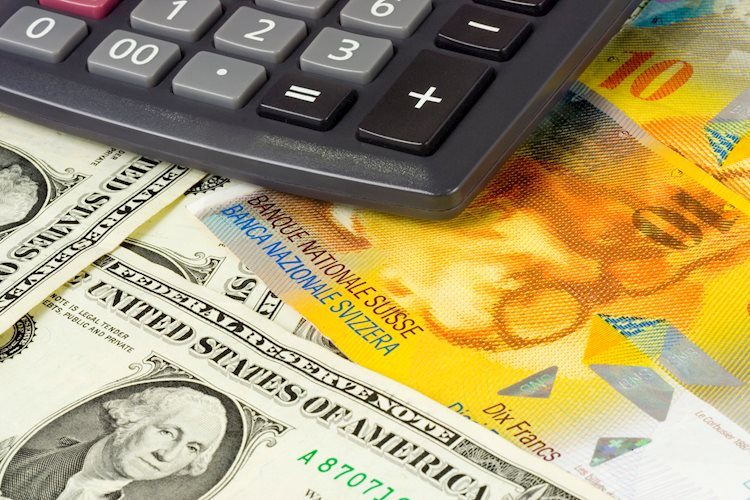Pweekly aglet, Yes or no? This is the question that many parents ask themselves and which an Italian study published on the Annals of the Higher Institute of Health.
The investigation specifically sought to investigate whether give pocket money to their pre-adolescent children may influence risky behaviors. This is an aspect on which the scientific literature does not yet seem to be unanimous: if on the one hand, in fact, there is who see pocket money as a useful tool for empowering young people on a financial level, on the other hand there are those who believe that this habit can create the premises for a dependence on the parents in matters of money.
«In the specific context of Healthalthough the evidence is still limited, it has been found by many a negative role of pocket moneyespecially for cigarette smoking, substance abuse and gambling – he writes in an article for Univadis, Carlotta Jarach Micaela, co-author of the work. – For this, with the group of the Mario Negri Institute in Milan And of the Catholic University of the Sacred Heartwe wanted to elaborate the effects of different pocket money schemes on five risky behaviors (smoking, drinking alcohol, binge drinkingi.e. immoderate alcohol intake aimed at getting drunk, drug use, gambling), evaluating the impact of the amount of weekly expenses, the frequency and extent of the source of money received. Right there distinction of the source of money (obtained through fixed pocket money or “as needed”) is what differentiates our study from most of the previous research on the subject».
Weekly pocket money: study data
The Lombardy regional data from the 2018 edition of the study were used for the survey Health Behavior in School-aged Children (HBSC), a cross-national survey of 11-15 year olds in over 51 countries and regions in Europe and North America in collaboration with the World Health Organization (WHO) Regional Office for Europe ).
They have been included 989 students aged around 15 belonging to 67 Lombard classes who provided information on the availability of money. THE risky behaviors have been evaluated through 5 different questions: “How many days, if any, have you smoked at least one cigarette in the last 30 days”“How many days, if any, did you drink alcohol in the last 30 days”, “In the last 12 months, have you ever consumed 5 glasses or more of alcoholic beverages, even different ones, on a single occasion (an evening, a party, alone, etc.)?”, “Have you ever smoked cannabis?“, and finally “How many times have you bet/played money in your life?”.
High availability of money and riskier lifestyle
According to the study, the teenagers who spent more than 10 euros a week they were more frequent smokers. Even those who received pocket money they were more often smokers, while no significant relationship was observed with receiving money only on request. Also, the teenagers who received less than 10 euros on request per week they had less likely to smoke, binge drink and gamble. Who had available more than 20 euros per week, on the contrary, it was significantly most at risk for binge drinking and gambling.
Furthermore, those who received pocket money they had more likely to engage in at least four out of five risky behaviors while a significant relationship was not found for those who received money only on request. In the end, teenagers That they received less than 10 euros on request they had least likely to engage in four risky behaviors.
According to the results, receive pocket money (rather than receiving cash on demand) and so correlated with an increased likelihood of engaging in risky behavior. But another fact also emerges: the figure of 10 eurosindeed, it seems represent the weekly threshold beyond which this negative effect is recorded.
The hypothesis
To explain why receive money on request may be related to a less likely to engage in risky behavior researchers have formulated several hypotheses. The first is that the request for money from parents Often implies the need to clarify the reasons so it is asked: a factor that could push the children to feel more inclined to respect the commitment made with the parents and pursue the original request.
Another possible explanation is that the absence of fixed pocket money can induce teenagers to feel a greater responsibility towards money required, felt not as a right but as a way to be part of management familiar. Other strategies, such as giving money based on houseworkthey allow to start discussions and negotiationsfundamental in financial education process, arguments that, on the contrary, obtaining pocket money does not require.
As the study authors themselves point out, however, they will be needed further research to understand because providing money only when needed can act as a protective factor against risky behavior.
«Our study is not without limitationssince based on sectional data (it is therefore not possible to establish causal links) and self-reported by adolescents (therefore there may have been errors in declaring risky behavior or money actually in possession) – he concludes Carlotta Jarach Micaela – Furthermore, data was collected on a relatively small sampleand therefore caution should be exercised in generalizing the findings.
In Italy, almost two million adolescents addicted to food, social media and video games
Money does not buy happiness? But yes: science confirms it
If you feel like an “imperfect” parent, then there’s something you need to know
Source: Vanity Fair
I’m Susan Karen, a professional writer and editor at World Stock Market. I specialize in Entertainment news, writing stories that keep readers informed on all the latest developments in the industry. With over five years of experience in creating engaging content and copywriting for various media outlets, I have grown to become an invaluable asset to any team.






